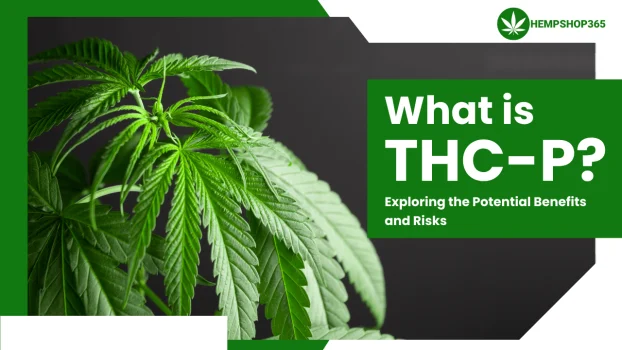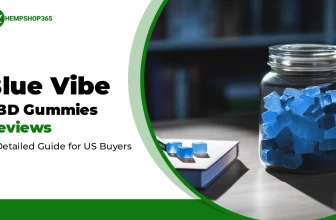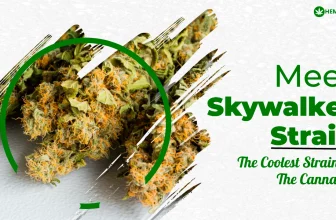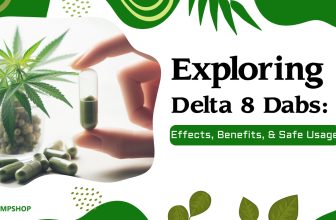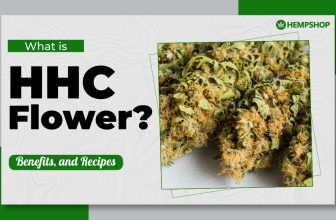What is THC-P?
THC-P, also known as Tetrahydrocannabiphorol, is a potent cannabinoid found in cannabis plants. Renowned for its unique properties, including a longer alkyl side chain facilitating enhanced binding with receptors in the body, THC P offers the potential for intense psychoactive effects. Available in various forms like disposable vapes, edibles, and pre-rolls, THC P is federally legal in the United States and classified as an analogue of traditional Delta-9 THC, albeit with regulations varying by state. While users report a robust high akin to a blend of traditional THC and mild psychedelics, caution is warranted, especially for individuals with anxiety-related issues.
Keynotes:
- THC-P, a potent cannabinoid in cannabis, distinguishes itself with an elongated alkyl side chain, potentially leading to stronger psychoactive effects and therapeutic benefits compared to traditional THC.
- THC-P induces a potent high, exceeding traditional THC, with a reported 33 times greater binding affinity to CB1 receptors, resulting in heightened awareness and time dilation.
- Federally legal under the 2018 Farm Bill, its legality varies by state. Adherence to state laws and compliance with regulations are crucial for safe consumption.
- It may offer pain relief, anti-inflammatory effects, appetite stimulation, neuroprotection, and mood regulation. Caution is advised due to its potent psychoactivity, emphasizing the importance of dosage control and consulting healthcare professionals.
Known for Its Unique Properties
THC-P distinguishes itself through unique attributes, notably its elongated alkyl side chain compared to conventional THC, enhancing its binding affinity with bodily receptors. This structural difference suggests it may exert stronger psychoactive effects and potentially offer therapeutic benefits akin to THC, including pain relief, nausea alleviation, and assistance in managing various disorders.
Does THC-P Get You High?
THC-P, or Tetrahydrocannabiphorol, has the potential to induce a strong high, with effects that are thought to be more potent and longer-lasting than traditional Delta-9 THC. Research suggests that it interacts with the body’s endocannabinoid system, particularly binding 33 times more effectively to CB1 receptors than THC.
This heightened affinity to receptors may lead to a significantly more intense psychoactive experience, potentially over 30 times stronger than that of THC. Users and researchers note that the effects of THC-P are akin to a combination of traditional THC and mild psychedelics, offering heightened awareness, a sense of time dilation, and a unique psychoactive experience.
However, it is essential to exercise caution with it consumption, as excessive intake may result in undesirable side effects like anxiety, paranoia, dry mouth, and potentially new, unknown side effects. While THC-P is a promising cannabinoid, further research is needed to understand its effects and ensure safe consumption.
Legal Status and Considerations
It’s legal status in the U.S. is governed by the 2018 Farm Bill, which regulates hemp cultivation and exempts hemp-derived compounds, including THC-P, from federally controlled substance classification. However, state regulations may vary, necessitating adherence to state laws. Additionally, research endeavours involving cannabis must comply with federal and state regulations to ensure safe and legal practices.
Legal Status and Considerations
It’s legal status in the U.S. is governed by the 2018 Farm Bill, which regulates hemp cultivation and exempts hemp-derived compounds, including THC-P, from federally controlled substance classification. However, state regulations may vary, necessitating adherence to state laws. Additionally, research endeavours involving cannabis must comply with federal and state regulations to ensure safe and legal practices.
Potential Benefits and Usage
THCP, or Tetrahydrocannabiphorol, offers a range of potential benefits and applications due to its unique properties as a potent cannabinoid. Here are some of the potential benefits and usage considerations based on the provided sources:
Potential Benefits of THCP
- Pain Relief: THCP has shown potential for relieving pain, including chronic pain conditions, due to its interaction with the body’s receptors.
- Anti-inflammatory Effects: Research indicates that THCP may possess anti-inflammatory properties, making it a potential candidate for addressing inflammation-related conditions.
- Appetite Stimulation: THCP could play a role in stimulating appetite, beneficial for individuals experiencing appetite suppression due to medical conditions or treatments.
- Neuroprotective Potential: Initial findings suggest the neuroprotective potential of THCP, supporting brain health and function.
- Sleep Aid: Emerging research indicates that THCP may have sleep-inducing properties, potentially aiding individuals struggling with insomnia or sleep disturbances.
- Nausea and Vomiting Relief: THCP’s interaction with the endocannabinoid system may offer relief from nausea and vomiting, particularly for those undergoing chemotherapy or experiencing gastrointestinal issues.
- Mood Regulation: Some studies suggest that THCP may influence mood regulation, presenting opportunities for managing mood disorders or enhancing overall emotional well-being.
Usage Considerations
- Potent Psychoactivity: THCP is known for its intense psychoactive effects, potentially being more potent than traditional THC. It’s crucial to approach products containing THCP with caution due to their strong impact on the mind and body.
- Quality of Products: Prioritize products from reputable brands that undergo rigorous testing to ensure purity and potency. Understanding the source of the product, whether derived from cannabis or hemp, can impact its overall quality.
- Dosage Consideration: Start with low doses of THC-P due to its high potency; even small amounts can produce significant effects. Experiment with different consumption methods and dosages to find what works best for you.
By understanding these potential benefits and considering key usage aspects, individuals can explore the therapeutic possibilities of THCP while ensuring safe and effective consumption practices.
THC-P's Psychoactive Effects
Research indicates THC-P’s capacity to induce a potent high, exceeding that of traditional Delta-9 THC. With a reported 33 times greater binding affinity to CB1 receptors, it delivers a significantly intensified psychoactive experience, characterized by heightened awareness and time dilation.
However, prudent usage is advised due to potential adverse effects like anxiety and paranoia, particularly with excessive intake.
Potential Benefits of Using THC-P for Anxiety or Depression
- Anxiety Management: Preliminary studies suggest that THC-P may have anxiolytic properties, potentially offering a natural remedy for anxiety-related issues.
- Mood Regulation: THC P has been indicated to influence mood regulation, presenting opportunities for managing mood disorders or enhancing overall emotional well-being, which could be beneficial for individuals experiencing depression.
- Potential Pain Relief: While not directly related to anxiety or depression, THC P’s potential for pain relief could indirectly benefit individuals experiencing physical discomfort that may exacerbate anxiety or depression symptoms.
By exploring the potential benefits of THC P, individuals with anxiety or depression may find relief, mood enhancement, and potential therapeutic effects. It is essential to approach the use of THC-P with caution, considering individual tolerance levels and desired effects to optimize its benefits while minimizing potential risks.
The Recommended Dosages for Using THC-P to Treat Anxiety or Depression
Based on the information provided in the sources, the recommended dosages for using THC-P to treat anxiety or depression vary depending on the condition and individual response. Here are some key points regarding dosages for treating anxiety or depression with THC P:
- CBD Dosages: Clinical trials have suggested that CBD may have anxiolytic properties in doses ranging from 25 mg to 125 mg per day to reduce anxiety levels in diagnosed patients.
- THC Dosages: When considering THC for anxiety or depression, it is crucial to start at low doses and titrate gradually to assess individual tolerance and response. Higher doses of THC can have sedative effects and may exacerbate anxiety, especially in vulnerable individuals or inexperienced users.
- THC-P Dosages: While specific dosages for THC-P are not explicitly mentioned in the provided sources, it is essential to approach THC P with caution due to its potency, which is thought to be approximately three times stronger than Delta-9 THC. Starting with low doses and gradually increasing while monitoring effects is advisable to determine the optimal dosage for treating anxiety or depression with THC P.
- Consultation: It is recommended to consult with a healthcare provider or medical professional experienced in cannabinoid therapy to determine the most suitable dosage of THC P for treating anxiety or depression. Individual factors such as medical history, existing conditions, and sensitivity to cannabinoids should be considered when determining the appropriate dosage.
Some Potential Side Effects Based on the Provided Sources
- Psychological Distress: Higher doses of THC-P, being approximately 30 times more potent than traditional THC, may lead to increased psychological distress, including anxiety and paranoia. It is crucial to monitor dosage carefully to avoid these adverse psychological effects.
- Intoxication: The potent psychoactive properties of THC-P can induce a strong high, potentially leading to intoxication and altered perception. This heightened state of euphoria may impact cognitive function and daily activities, necessitating caution in its use for individuals with anxiety or depression.
- Unknown Side Effects: Due to the limited research on THC-P, there may be unknown side effects associated with its use for treating anxiety or depression. The lack of comprehensive studies makes it challenging to predict the full spectrum of potential adverse reactions that individuals may experience.
- Individual Sensitivity: Individual genetic and environmental factors can influence how THC-P interacts with the body, leading to varying responses and tolerances among users. Some individuals may be more sensitive to the psychoactive effects of THC P, increasing the risk of experiencing unwanted side effects.
- Physical Symptoms: While not explicitly mentioned in the provided sources, it is important to consider potential physical side effects such as dry mouth, dizziness, lethargy, or changes in heart rate that can accompany the use of potent cannabinoids like THC-P.
In conclusion, when using THC-P to treat anxiety or depression, individuals should be aware of the potential side effects such as psychological distress, intoxication, unknown risks due to limited research, individual sensitivity variations, and possibly physical symptoms. It is advisable to consult with a healthcare provider before incorporating THC P into a treatment regimen and to closely monitor its effects for optimal outcomes while minimizing risks.
Conclusion:
while THC-P shows promise as a potent cannabinoid with potential therapeutic benefits, further research is necessary to understand its effects fully and ensure safe consumption practices. By exercising caution, adhering to legal regulations, and seeking guidance from healthcare providers, individuals can explore THC-P’s potential while mitigating associated risks. Emphasizing continued research and responsible usage will be essential for maximizing the benefits of THC P while minimizing any potential drawbacks.
FAQs
Is THC-P safe to use?
Yes, THC-P is generally considered safe to use, but caution is advised due to its potency and the need for further research on its effects and potential side effects. It is essential to purchase from reputable sources, start with low doses, and monitor individual responses to minimize risks associated with its potent psychoactive properties.
Is THC-P stronger than Delta-9 THC?
Yes, THC-P is stronger than Delta-9 THC. THC-P is approximately 10 times more potent than Delta-9 THC, making it a more powerful cannabinoid in terms of its psychoactive effects and binding affinity with cannabinoid receptors in the brain and body.
How is THC-P made?
THC-P is typically synthesized by converting CBD and/or hemp-derived Delta-8 THC. This process involves heating the compounds to activate the cannabinoids and infusing or coating marijuana strains with higher levels of THC-P than traditional cannabis sativa. The resulting THC-P products, such as distillates, edibles, pre-rolls, and flower, offer a potent psychoactive experience due to the enhanced effects of THC-P on cannabinoid receptors.
How can THC-P be used safely?
To use THC-P safely, consider the following guidelines based on the provided sources:
- Start Small: Begin with a low dose of THC-P and gradually increase it to allow your body to acclimate to the effects. Starting small helps in identifying the right dosage that works for you and minimizes the risk of unwanted side effects.
- Buy From Trusted Sources: Purchase THC-P products from reputable and reliable sources that conduct third-party testing to ensure purity, potency, and quality. Look for products that have been tested for contaminants and meet safety standards to ensure a safe consumption experience.
- Monitor Your Body’s Response: Pay close attention to how your body reacts to THC-P. Keep track of any changes, discomfort, or side effects you may experience. If you notice any adverse reactions, stop using THC-P and seek medical advice if needed.
By following these safety measures, individuals can optimize their experience with THC-P while minimizing the risk of adverse effects and ensuring a safe consumption experience.
Is THC-P legal?
THC-P is federally legal under the stipulations of the 2018 Farm Bill as long as it is derived from hemp and contains a THC concentration of no more than 0.3% Delta-9 THC. However, its legality may vary at the state level, so it is essential to consider state laws regarding THC-P before using or purchasing it.
Will THC-P show up on a drug test?
Regarding drug testing, while THC-P is not typically included in standard drug tests designed to detect THC and its metabolites, there is a possibility for THC-P to produce a positive result due to structural similarities with THC. Factors such as the level of THC-P consumption, metabolism rate, and potency of the product can influence its detectability. Individuals subject to drug testing should exercise caution and be aware of the potential for THC-P to show up on tests, especially in situations where its presence could have consequences.

